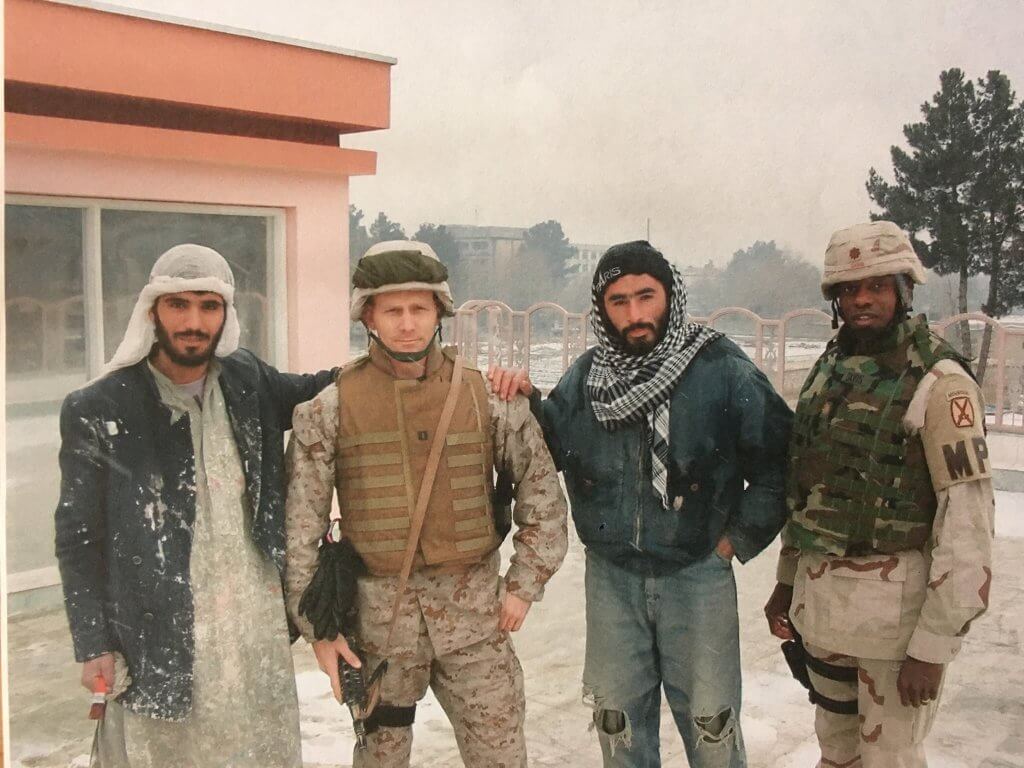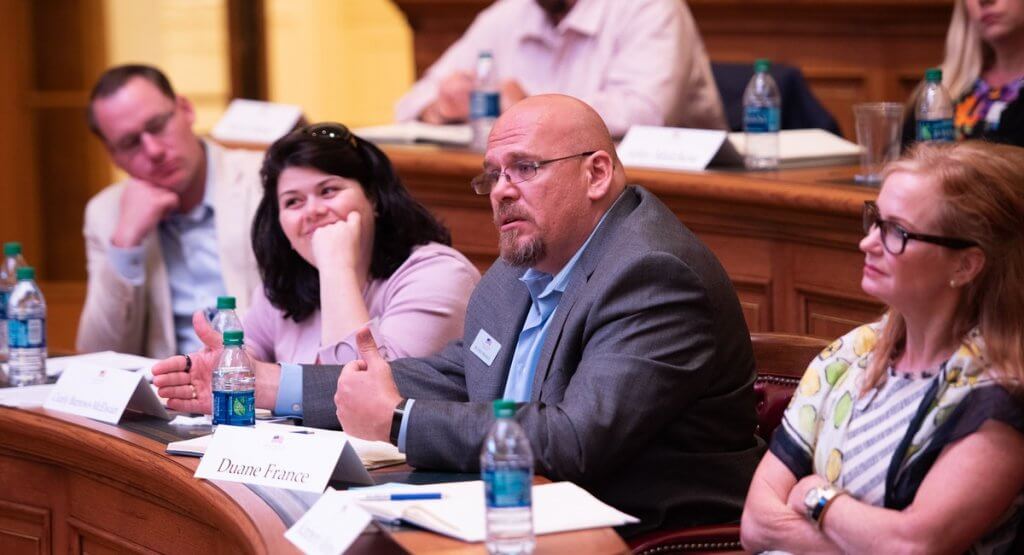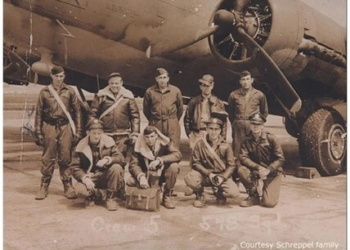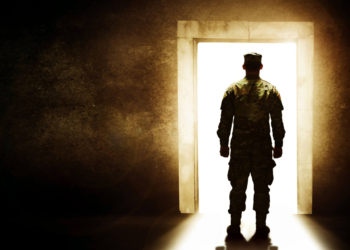When the end of Army veteran James Davis’ deployment to Afghanistan was in sight, his excitement about returning home in time for his son’s birthday suddenly was replaced by a “knot in the gut” created by a simple question: Why had he survived when others had not?
“I got to go home because somebody else had to come and take my place,” recalled Davis, a retired lieutenant colonel from Horry County, South Carolina. “That person may not be as fortunate as me. I’ve asked the question often, as many of us do, ‘God, what’s so special about me that I get to live?’”

As the United States removes its forces from Afghanistan and marks the end of the nation’s longest military engagement, survivor’s guilt is but one of the mental health challenges facing some of the nation’s post-9/11 veterans, more than 2.7 million of whom deployed to a war zone during the past 20 years.
Epidemiologist Rajeev Ramchand, PhD, a senior behavioral scientist at RAND Corporation, notes that veterans’ mental health issues can span a range of diagnosable conditions such as post-traumatic stress disorder, depression, traumatic brain injury, anxiety, and substance abuse. But most are “treatable conditions,” Ramchand pointed out. “So, there’s hope. There are evidence-based treatments that we know work.”
Clinical counselor Duane France, LPC, an Army retiree, says service members reintegrating into civilian society can also be impacted by “transition stress” caused by worries related to basic necessities, such as jobs, housing, and loss of a sense of purpose.
“I work with a lot of veterans who feel like they want to have more purpose and meaning in their post-military lives,” said France, director of veteran services, Family Care Center, Colorado Springs. “They want to be satisfied with what they’re doing, and they feel a loss of that after the military.”
Integrating back into family life can be challenging for service members who have spent their military careers on endless deployment cycles. Because families adapt to repeated separations by creating new roles within the family, Ramchand said returning military members may not “know where they fit in this new system or they may want to go back to the old system and the family doesn’t want to.”
Ramchand says an “open dialogue and trusting in that communication” is key to solving reintegration challenges. He also suggests couples take advantage of military marriage enrichment programs and seek counseling as needed.
Give an Hour is one place to turn for help. The national nonprofit includes 4,200 licensed mental health providers who each week offer free and confidential counseling to active duty, veterans, members of the Guard and reserves, and their family members.
Give an Hour Chief Executive Officer Trina Clayeux, PhD, stresses the importance of military members crafting a support system and, when necessary, seeking mental health help from within their communities, military bases, or from licensed professionals.
‘It’s really trying to find what fits for you,” she said.
Clayeux also suggests not waiting for a crisis to seek help.
“Support can come at any place in your mental health and wellness journey,” she said. “It doesn’t have to wait until it gets significant so that it’s impairing parts of your life. Sometimes we just need support in real time for a particular event and other times we need support that’s more long term and reoccurring.”

While the outward signs of a mental health problem can be highly individualized, France says a person experiencing a mental health crisis often has a “change in normal behavior.” That could mean a gregarious person becomes withdrawn or vice versa, a change that may be accompanied by increased use of coping techniques such as drugs or alcohol. Service members may also have “anniversary reactions” tied to traumatic events that occurred while they were deployed.
“Memorial Day doesn’t just happen in May for a lot of veterans,” France said.
Davis adds that not every veteran is able to compartmentalize their time in Iraq or Afghanistan and leave the war “over there.” Officers may not be “kicking in doors and squeezing bullets directly at the bad guy,” he said, but they too can experience trauma from decisions made in wartime.
“We orchestrate it all,” Davis said. “So, when we put something together that results in a life being taken, we share in that responsibility. We live with that, too.”
Since retiring from the military in 2011, Davis has taught Junior ROTC and served as Director of Military & Integrated Services for Horry County Schools. Through counseling, he has learned to open up about his wartime experiences and draw strength from the memories of friends lost to war.
“We need to talk and express those feelings,” he said. “We need to open up and be able to move forward with our life. That part of our life is over. It’s completed and not continuing to haunt us every day.”
Where to turn for help:
Coaching into Care https://www.mirecc.va.gov/coaching/
Give an Hour https://giveanhour.org/military/
Military OneSource: Building Health Relationships https://www.militaryonesource.mil/confidential-help/specialty-consultations/building-healthy-relationships/building-healthy-relationships/
State Veterans Benefit Finder https://www.cnas.org/publications/reports/state-veteran-benefit-finder
Army Strong Bonds Program https://www.strongbonds.org/
Marine Corps Prevention and Relationship Enhancement Program (PREP) https://www.quantico.usmc-mccs.org/marine-family/family-readiness/marine-corps-family-team-building-mcftb/prevention-and-relationship-enhancement-program-prep/
Navy Chaplains Religious Enrichment Development Operations (CREDO) https://www.cnic.navy.mil/regions/cnrma/om/religious_programs.html
Air Force Marriage Care Program
Real Warriors Campaign https://www.health.mil/Military-Health-Topics/Centers-of-Excellence/Psychological-Health-Center-of-Excellence/Real-Warriors-Campaign
Read comments







































